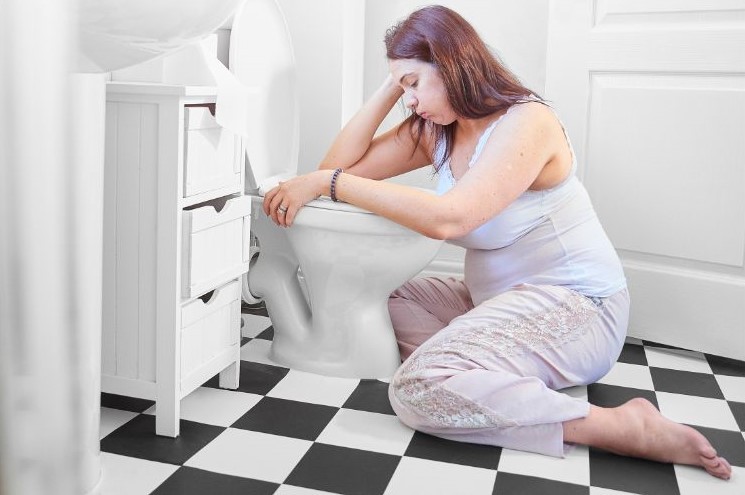You’ve finally done it you’re going to be a parent! Congratulations! You’re about to embark on the most amazing journey of your life. But before you do, there’s one more important decision you need to make: what kind of stroller are you going to use?
If you’re planning on having two kids or more, then a double stroller is a must. But with so many different options on the market, how do you know which is the best double stroller for your family? That’s where this article comes in. We’ll help you consider all the important factors, from budget to features, so that you can make the best possible choice for your little ones.
So whether you’re looking for the best double stroller for twins or the best double stroller for a toddler and baby, we’ve got you covered. Keep reading to learn everything you need to know about choosing the perfect double stroller for your family.
Becoming a mom is one of the most amazing experiences a woman can go through in her life. But for some women, it can also be a time of confusion and worry, as they may not know what is happening to their body and whether or not they are pregnant.
If you are experiencing any unusual symptoms, you must discuss them with your doctor to rule out any possible health concerns. Here are some unusual signs of pregnancy that you should be aware of:
Table of Contents
Unusual Signs of Pregnancy
 Dizziness and lightheadedness
Dizziness and lightheadedness
Because the capillaries dilate to send still more blood to the womb, blood pressure may fall throughout early pregnancy. Lightheadedness can be caused by decreased blood pressure, which might also be caused by tiredness, low blood sugar levels, and stress and anxiety.
Tension can be reduced by eating small, frequent meals and attempting to keep calm.
Nosebleeds
Because of the hormone changes that occur in pregnancy, nosebleeds are pretty common. Nosebleeds are rarely severe and are frequently unhelpful at home.
Headaches
Expectant mothers can experience distress due to the elevated estrogen levels in their bodies. Anxiety or tiredness may also induce tension headaches.
Pregnant women should talk to their doctor before taking any medication while expecting, including non-prescription pain relievers.
Mood swings
The hormone shifts in the first few weeks of pregnancy can cause mood swings.
Expectant moms might feel more emotional than usual. Right now, intense emotions are pretty typical, yet they may need discussion with a doctor at times.
Unusual taste in the mouth
Professionals believe that hormone adjustments might induce the condition dysgeusia in some pregnant women. Some women report having a metallic taste in their mouth or excessive saliva.
Although these symptoms might be inconvenient and annoying, they are not a cause for concern.
Acne
Acne is a very early indication of pregnancy that many women experience. Some ladies already have acne, but it becomes worse during pregnancy.
The American College of Obstetricians and Gynecologists recommends the following for managing acne while pregnant:
- Use a mild cleanser and warm water to cleanse the face twice daily.
- To decrease the risk of scarring, avoid picking or pressing acne sores.
- determining whether or not your oil-free cosmetics are right for you
- Before utilizing any product, speak with a healthcare professional to ensure they are safe to use during pregnancy.
Shortness of breath
The increase in progesterone, a hormone produced by the ovaries that occur in the first few weeks of pregnancy, can cause women to take deeper breaths regularly. As a result, they may genuinely believe they have shortness of breath.
Shortness of breath is a common symptom when there isn’t enough air getting into the lungs.
Enhanced sense of smell
An enhanced sense of smell characterizes early pregnancy. It’s believed to be beneficial for your body to adapt to avoid digestive issues. It’s why we quit eating certain items before we’re about to give birth.
This may be why Japanese females are the most likely to suffer from morning sickness. Their diet, which is heavy in fish, has a variety of health and nutritional benefits, but seafood also poses an increased risk of food poisoning.
Discharge from the Vagina
Most women experience vaginal discharges at various times during their monthly cycle. Clear, white, or tacky discharge is typical during pregnancy and occasionally an early indication of pregnancy.
If a discharge is seen, it’s suggested that you visit a healthcare provider if the following occurs:
- It’s not white or transparent.
- has a rotten smell
- Itching, discomfort, or pain occurring alongside it.
Cravings and aversions
A yearning for sweets, for example, might indicate a nutritional deficit. Start your day with protein if you’re craving sweets and other carbohydrates.
If you want non-food items like dirt, chalk, or cash, you might have pica or need to contact your doctor. Having these cravings may indicate a bigger problem.
Fatigue
Some women feel incredibly weary throughout their first trimester of pregnancy, and high hormone progesterone levels are to blame for this symptom. Fatigue, like other early pregnancy symptoms and indicators, typically improves in the second trimester. For many females, however, fatigue returns in the third trimester.
Congestion
Rhinitis is a dripping nose many women experience during pregnancy. A humidifier, saline declines, or a saline rinse can help to relieve these congestions.
Irregular bowel movements
Hormone changes during pregnancy can cause constipation. Progesterone levels increase while pregnant, which relaxes the digestive tract wall surfaces and makes it more difficult to pass stool. This symptom is most common in the second half of pregnancy, although it can affect some women in the first trimester.
Heartburn and gas
After a meal of spicy enchiladas, expectant parents aren’t particularly delighted to seem like a belching trucker. Digestive system issues are common; even the most flavorless meals might trigger them.
Forgetfulness
One of the more perplexing pregnancy symptoms is “pregnancy brain,” a degree of forgetfulness that pregnant women are known to experience. You could feel worse forgetful or distracted than you used to, and it’s likely due to hormonal changes rather than a disruption in your regular rest times.
Many people may be unsure if “mommy brain” is real, with over a dozen studies having been completed and all concluding that pregnant women have cognitive decline both during and after pregnancy.
Stripes and dots are what you’re dealing with.
Actually, not really, but you’ll notice a darker line from your stomach button to the ground. It’s known as the linea nigra and has always been there. When you’re expecting it, it just becomes darker and more apparent.
It’s not the only thing that gets dark. Some expectant moms get a variety of hyperpigmentation, such as melasma (face areas) and darker nipple regions. There’s no need to be concerned; it’s typical and harmless.
You missed your menstrual cycle/period.
A missed menstrual period is the most typical and straightforward indication of pregnancy. Your body produces hormones that prevent ovulation and the loss of your uterine cellular layer after perception occurs. Your period is over, and you won’t have one until after the kid is born.
However, not having your period isn’t always an indication of pregnancy. You could also miss your duration due to tension, rigorous exercise, diet programs, hormone imbalances, and other
factors that can cause abnormal periods.
Morning Sickness (even throughout the day)
This awful condition can happen at any time of the day or night, regardless of name. Queasiness can start as early as two weeks after conception and continue into pregnancy. Not everyone experiences queasiness, and there are various degrees of queasiness.
You may experience nausea or vomiting without producing anything this varies from woman to woman. Vomiting affects about half of all pregnant women. While queasiness throughout pregnancy is typical, it can be distressing if you get dehydrated.
Hyperemesis gravidarum is a disease affecting women who can not control their food and liquids due to severe nausea or vomiting. If you are experiencing intense nausea and thirst, see your doctor.
Bathroom Trips: More Exciting Than You Think
Before you miss a duration, you may notice that you have to urinate more frequently. This is because you now have extra blood than previously. Your body’s blood flow improves while you are pregnant. Your kidneys clean your blood and eliminate any surplus waste. Urine results from this waste being removed from the body through urination.
Breast become bigger (and sore)
Your busts may become softer to the touch while you’re expecting. The discomfort may be comparable to what breasts feel before a period, but much more so. Your nipple areas could also begin to darken and grow in size. The discomfort disappears as soon as your body is used to the higher hormonal imbalances and darkens over time. You could notice that your breasts are more significant, and your bra is tighter than usual.
Do All Ladies Get Early Symptoms of Pregnancy?

Early pregnancy symptoms frequently overlap with other medical problems and your normal menstrual cycle. Premenstrual symptoms are sometimes identical to pregnancy, which can be difficult to distinguish, so don’t take it too seriously.
You may also be off by a few hours without realizing it. This can happen when you exercise in high volumes, lose or gain significant weight, or are worried. Nursing can also cause your duration to increase.
The most accurate method to confirm if you’re pregnant is to have a pregnancy test. If you’ve gone several weeks without a period and believe there’s a chance you’re pregnant, consider having one.
When to See a Healthcare Provider
These signals are not a sign of pregnancy. Anyone who feels they may be pregnant should get a pregnancy test to confirm it.
If any of the above symptoms cause expectant mothers discomfort to the point that it disturbs them, they should visit a doctor immediately.
While many symptoms are a little bothersome, others may be pretty severe and necessitate medical attention.
Final Thought — Unusual Signs of Pregnancy
So, if you’re experiencing any of the above symptoms (or others that we haven’t mentioned), it’s a good idea to take a pregnancy test to confirm. If the test returns positive, make an appointment with your healthcare provider immediately so they can start monitoring your progress and ensure a healthy delivery. Congratulations on your new addition!

